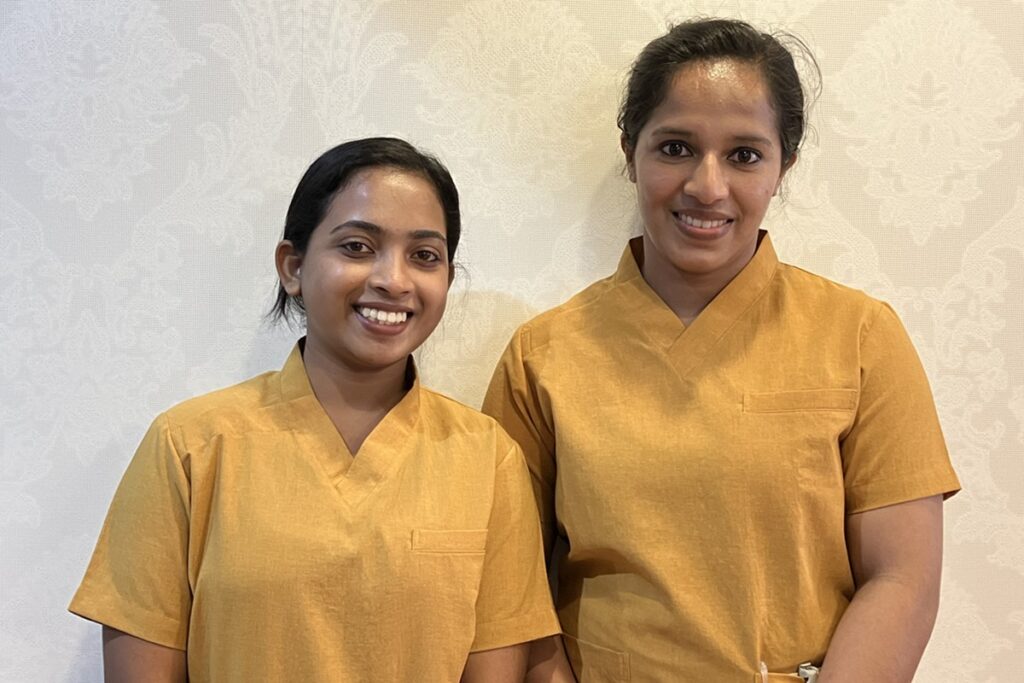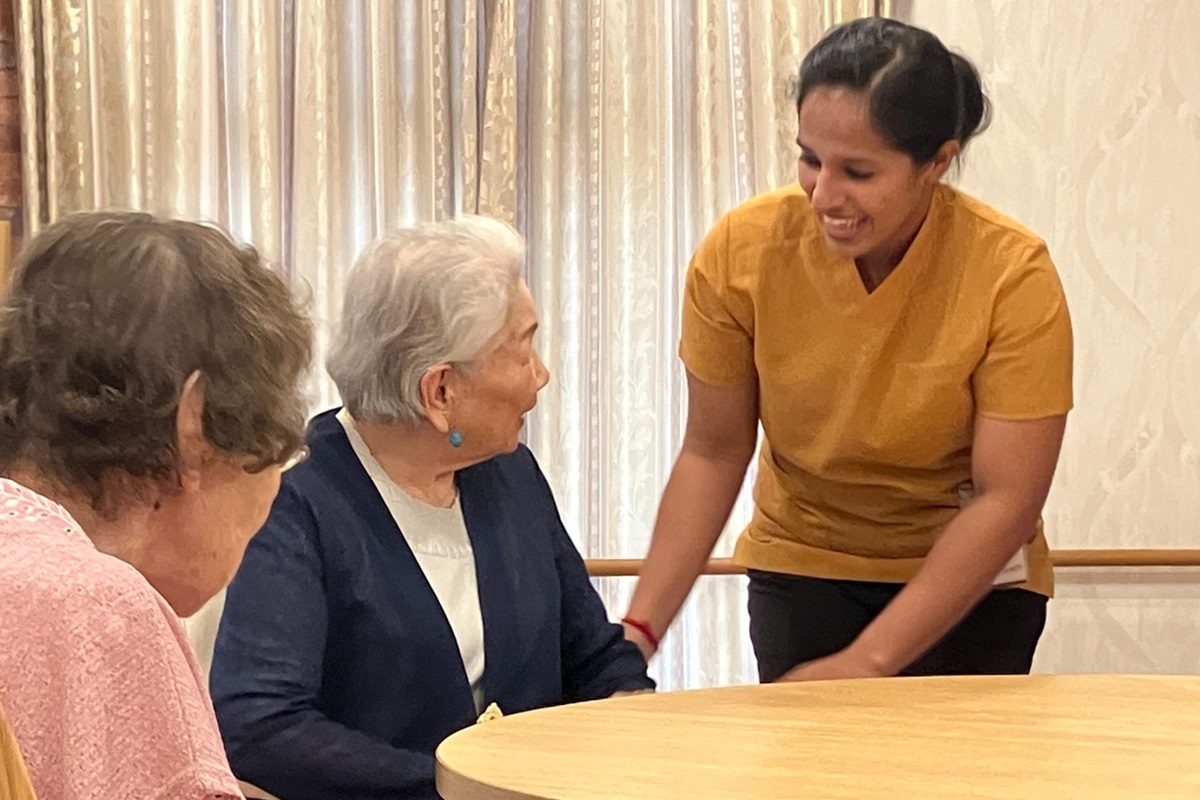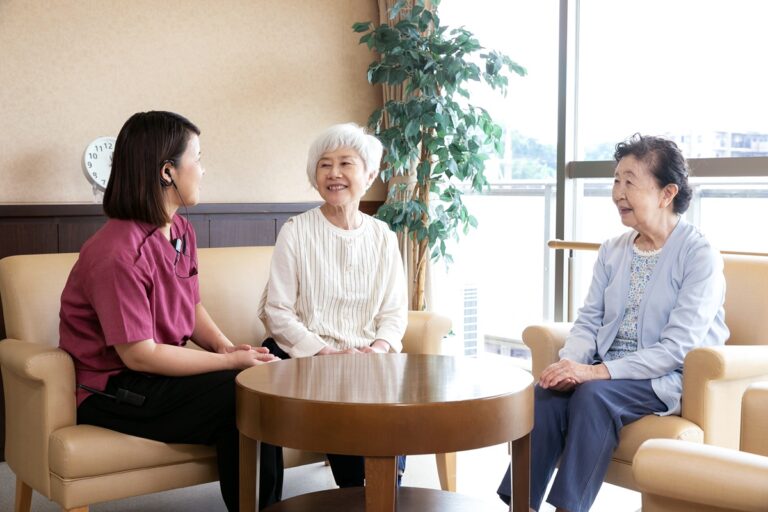From South to East Asia: Challenges on a new stage
Rincy, 25, hails from Kerala in the southern part of India. She worked as a nurse in her home country and was part of the first cohort of Sompo Care’s program for recruiting from India. She has recently been assigned to Sompo-no-Ie Sumida Park. Why did she choose to pursue a career in caregiving in Japan?
“Japan is a safe and clean country, and I felt there are many opportunities here,” Rincy explains. She laments the limited opportunities for nurses in India and the reality of still lower salaries compared to those here. Drawn by an appealing life in Japan and the promise of stable work, she decided to pursue caregiving.
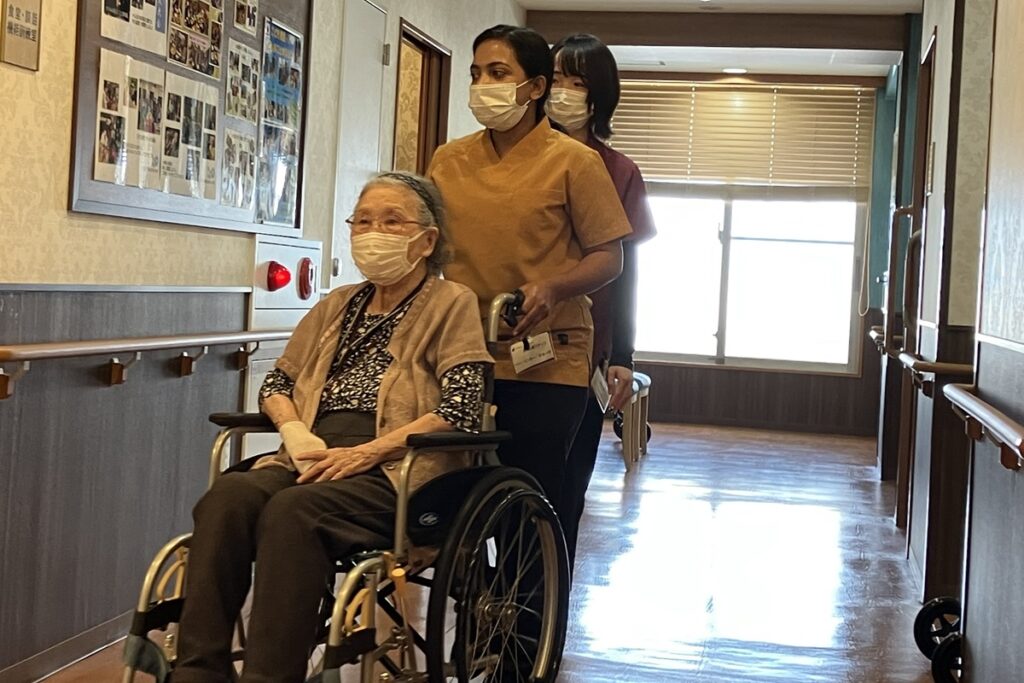
Joy and growth in the Japanese care setting
Though she has only been in Japan a short time, Rincy has already found joy in her work.
“The staff I work with are very kind and always help me. The job’s really enjoyable,” she says, expressing gratitude for the warm workplace atmosphere. Residents have also praised her. “You are really kind,” they say, which gives her a sense of fulfillment. Still, challenges exist. The biggest hurdle is the language barrier. “My Japanese isn’t very good yet, so communicating with residents can be difficult. You can imagine how tasks like assisting with bathing or using the toilet require detailed communication, so I know I still have a lot to learn,” she admits. Despite this, her dedication and conscientiousness drive daily improvement.
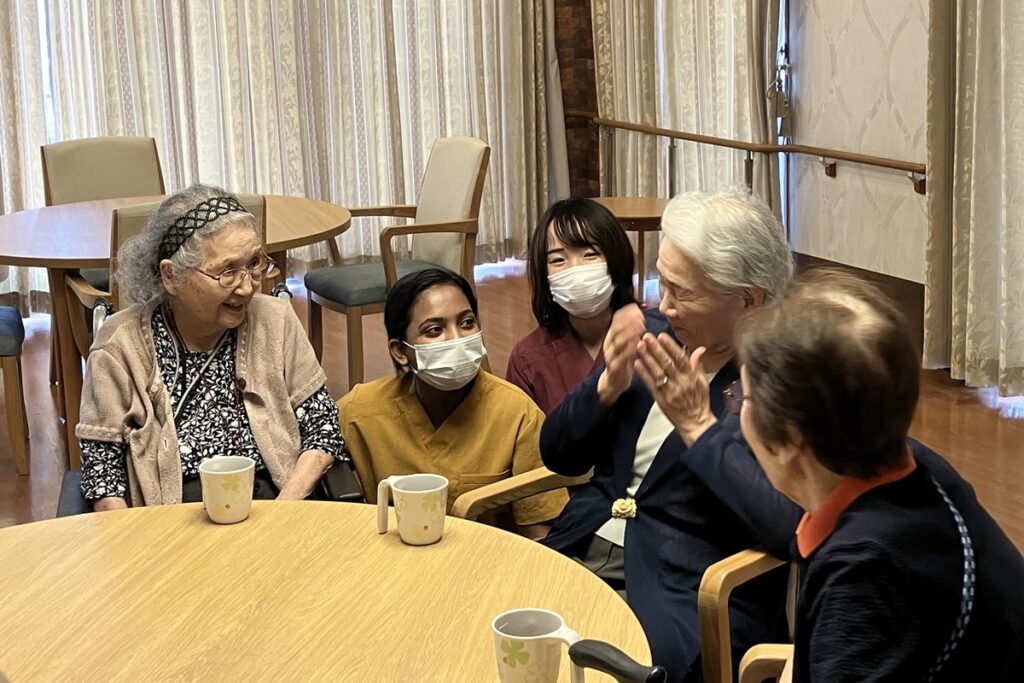
The potential of Indian talent
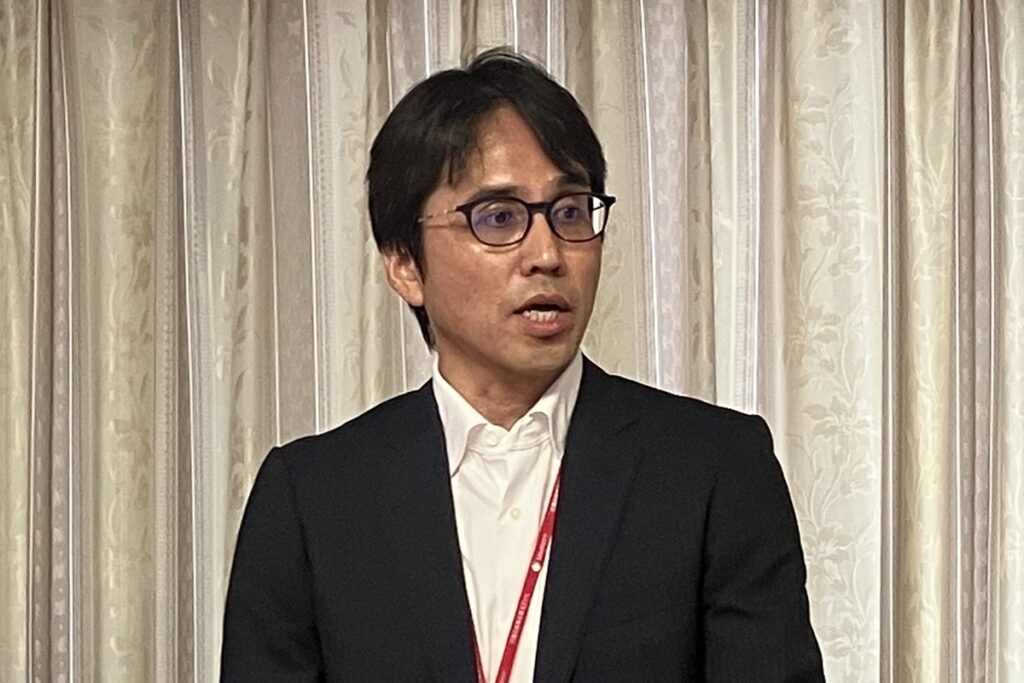
Sompo Care’s initiative to recruit caregivers from India addresses Japan’s serious shortage of care professionals. Mitsuru Sakoda, General Manager of the Global Business Division, calls this a strategic part of its Future Nursing Care initiative.
Why India? “Indian professionals are very diligent and eager to learn. We wanted to bring the expertise and motivation of highly educated, trained professionals to Japan,” he says.
India’s strong work ethics, high motivation for learning, close family ties, and sense of responsibility are qualities that make them well suited for long-term success in Japan’s caregiving environment.
The program invests heavily in training that starts in India. In partnership with NSDC International, a subsidiary of not-for-profit public limited company National Skill Development Corporation (NSDC) of India, participants receive around nine months of training in Japanese language and Japanese-style caregiving. Modeled on Sompo Care University, a Nursing Care Lab has also been opened in India to ensure that candidates acquire hands-on skills before arriving in Japan.
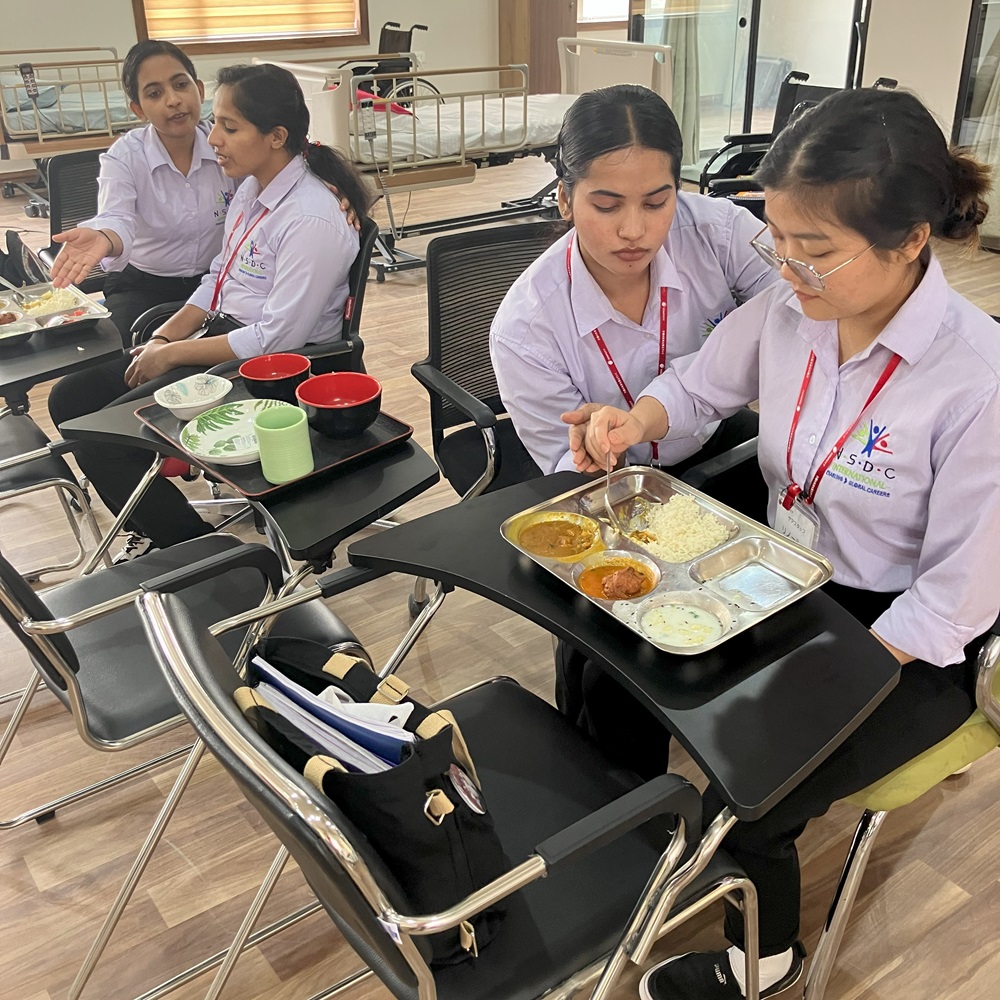
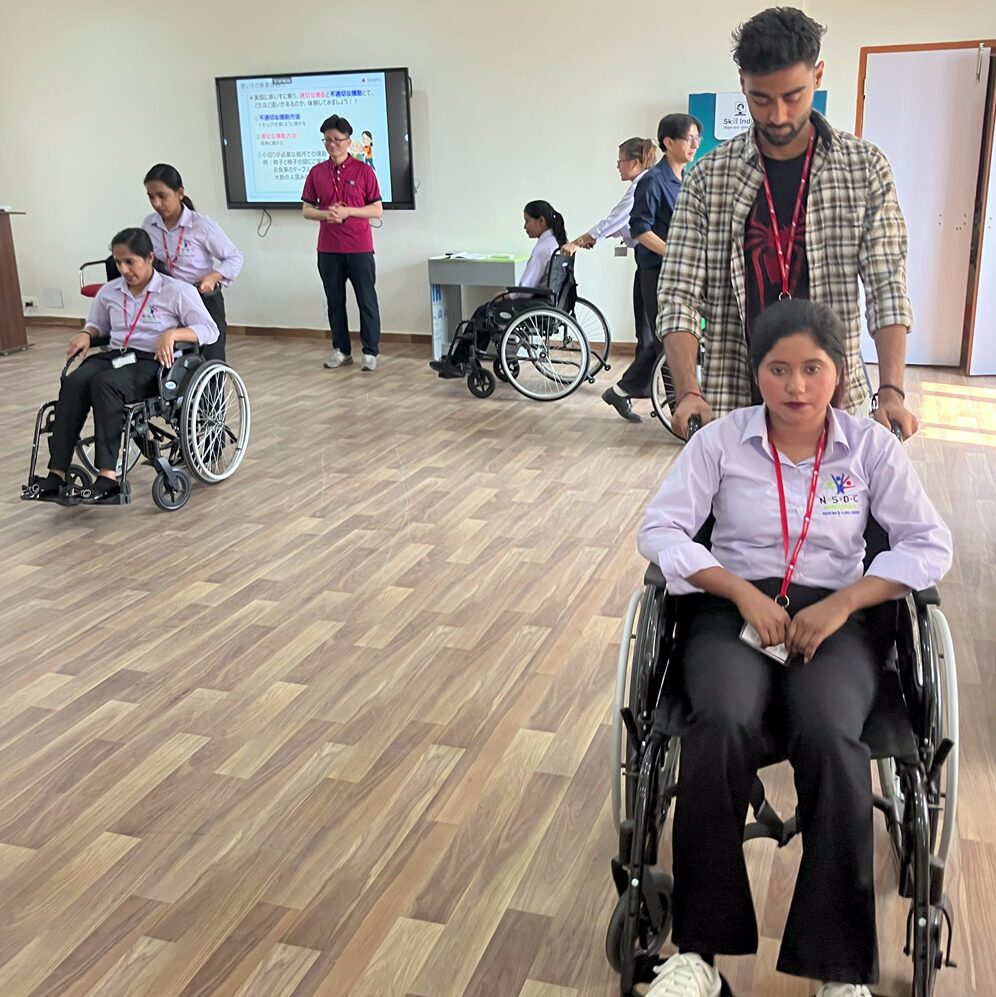
Sakoda highlights the company’s comprehensive support system, emphasizing, “It’s important for professionals to learn Japanese culture and caregiving skills before coming to Japan for a smooth transition. After they arrive, we continue the support through on-the-job training, housing, language learning and even career development assistance.”
Building career paths: From caregiver to certification and beyond
How does Sompo Care nurture such highly motivated talent?
“Ultimately, we hope each caregiver from overseas will obtain national certification as a certified care worker,” says Sakoda. We understand that passing the exam requires a high level of Japanese language ability, and the company fully supports employees in achieving this goal. Beyond direct caregiving, long-term career opportunities, including managerial positions, are also possible.
The first cohort of the program included six people. Two were assigned to Sompo-no-Ie Sumida Park, while others work at different facilities around Tokyo. The program will continue with second and third cohorts, aiming to recruit 40 to 60 caregivers per year, helping address labor shortages in the industry in Japan.
Rincy shares her dreams, “I want to work in Japan for at least ten years and become a certified care worker. I would be thrilled if I could eventually become a manager,” she says, her eyes shining with excitement.
Like Rincy, Anjani was also assigned to Sompo-no-Ie Sumida Park and is following a similar path. “I’m glad I can learn how to communicate with residents and also techniques (“body mechanics”) on how to provide assistance efficiently. I want to get my certified care worker license and eventually bring my family to Japan,” she says.
Sompo Care’s efforts are not only helping resolve Japan’s caregiver shortage, we’re also providing young Indians with new career opportunities, promoting a society where diverse talent can thrive. By working hand-in-hand, Japan and India are shaping the future of caregiving. The smiles of Rincy and Anjani symbolize this hopeful journey.
